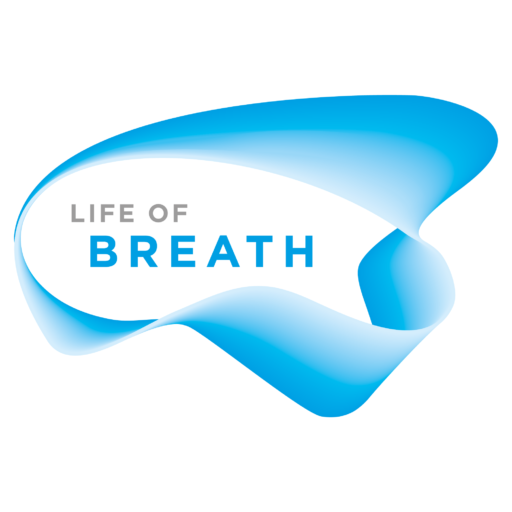Breathless in Bristol (2)
PhD student on the Life of Breath project Tina Williams, writes about the recent Philosophy of Medicine conference, with help from Emily Chester and Charlotte Withers:
Day two began with a session on ‘The Problem with Classes’. David Teira’s ‘Disease-mongering through clinical trials’ presented a more precise conceptualisation of disease-mongering (split into strong and mild forms) that highlights issues in statistical methodology; the reference class problem, and the substantive and statistical significance dichotomy. For example, over-prescription of Valium made huge profits for pharmaceutical companies, yet this was accomplished by over-prescription to patients that would not have been included within the trials target population. This paper showed that conceptual clarity between the fields of clinical trials and medical practice should be utilized in avoiding the exploitation of the current confusion between clinical and statistical significance that leads to potentially harmful results via disease-mongering, before discussion of possible solutions to prevent this exploitation.
Next, Andrew Turner evaluated the House of Commons Science and Technology Committee’s position on the ‘implausible effectiveness of homeopathic treatments’. Presently, the STC board doesn’t include the plausibility argument in it’s reasoning of denying funding to homeopathy research and treatment in the NHS despite evidence for not only its ineffectiveness but also its mechanistic implausibility, as shown in many other medical studies. Andrew argued that the STC should consider their stance on including the plausibility argument against NHS funding into homeopathy considering the strength of evidence, a position that many were sympathetic to. However, some dissenters pointed out that an absence of evidence cannot be equated with evidence of no effect/absence: perhaps with our changing medical technologies and future shifting paradigms we may find an explanatory framework – mechanistic or otherwise – that shows homeopathy does have benefits, and how this is realized.
Wendy Rogers‘s paper ‘When diagnoses fail to explain’, provided an insight into the nature of over-diagnosis, splitting the rather broad concept into two different types that can manifest in medical practice: misdetection and misclassification. Her attention to such a careful analysis illuminated how diagnosis can fail to do its job with multiple resulting complications for patient and medical diagnosis alike. These issues include problems pertaining to a knowledge deficit: biomarkers present but currently there is not enough knowledge to definitively point to who will actually suffer from the disease. That is, an inability to move from the presence of biomarkers to the realisation of a disease. Further, over-diagnosis can result when thresholds for diagnosis not only result in false positives, even when there are no symptoms of the disease or harmful disruption present. Using the case of thyroid cancer, Rogers gave concrete examples that highlighted the consequences of these problems: that our ‘sophisticated’ diagnostic technologies actually do not map neatly onto actual diagnoses ‘resulting in diagnoses that fail to predict and the labelling of individuals with diseases that do not cause harm’ (2015).
The next paper was ‘How symptom formulation may depend on psychiatric classifications’ by Sam Fellowes, who argued that despite the common assumption that psychiatric symptoms exist apart from classification (symptoms first, classification after via grouping/meeting diagnostic criterion), symptom formulation is actually sometimes dependent on employing classifications. Often in psychiatry, as in many other disciplines, we find that theory guides research, inclusive of judging what counts as relevant data, sometimes ignoring findings or suggestions that don’t fit (questionable science, but it happens). This can result in classification being used implicitly as reference for symptom formulation, and Fellowes gives a brilliant discussion of how this is problematic and the possible implications. For instance, Rdoc’s project intends to be independent of current psychiatric theory and classification (particularly descriptive psychiatry) – implicit or otherwise, but can be taken to be inhibited or hindered by the influence of classifications that already exists and shape our knowledge and understanding of which symptoms count in the context of classification. He elaborated further consequences that unfortunately we cannot discuss further here, but as with all the talks given within this conference we recommend listening to the talks (most of the papers are available as audio recordings on the conference website) and reading the published papers.
Next, Leen De Vreese presented ‘What medically unexplained physical symptoms can teach us about scientific understanding in medicine’. This informative talk discussed the influence of medically unexplained physical symptoms, hereafter MUPs, as well as the challenges that they pose for medicine. These include chronic fatigue syndrome, unexplained chronic back pain and other somatic syndromes that (perhaps only currently – until medical technologies or a revealing paradigm shift like those needed by, for example, Rdoc or with actual homeopathic evidence, linking back to other talks) lack scientific explanation in medicine. Although explanatory models for these ‘unexplained’ conditions exist, they don’t meet medicines nor sciences criteria as affording us real scientific knowledge or understanding. De Vreese cleverly uses the stance on MUPs to critique the relationship between explanation and understanding in the field of medicine, suggesting that perhaps pluralistic accounts of scientific understanding can contribute to the field. However, questions remain over the reality of epistemic claims of explanatory models, pluralistic or otherwise. Does it make sense to claim that full scientific understanding is achievable? What evidence do we have for this? Is it desirable, let alone feasible? Most importantly, what justifies it as the goal in medicine?
Ian Kidd, in his talk ‘Making Sense of Moral Pathography’, noted the potentially edifying nature of illness narratives. Contra inferentialitsts, who primarily concern themselves with philosophically objective arguments, Kidd advocated an exemplarist approach to illness narratives, in which it is understood that moral persuasion can occur through personal oral or literary encounters. Martha Nussbaum notably championed the exemplarist view, arguing that moral persuasion can legitimately involve personal emotional and anecdotal accounts. Illness narratives predominantly focus on how people cope with the world, and are primarily emotive and episodic in style. Kidd also noted that illness narratives can be both scholarly and mundane (e.g. Carel, Illness, interspersing everyday anecdotes with phenomenological insight). Illness narratives tend not to include inferentialitst machinery, such as premised arguments, and Kidd suggested this omission potentially guards against the atrophy of ethical reflection on the experience of illness that inferentialism is sometimes guilty of.
The world of the healthy person is completely transformed during the experience of illness and the exemplarist approach to illness narratives, in which philosophy is understood as a way of life, best captures this. To conclude his talk Kidd noted that a defence of inferentialism could be made via heuristics; those who support an Evidence Based Medicine approach could argue that it is not that they see illness narratives as ‘wrong’, but rather there are easier ways of finding the moral and ethical dimensions of illness.
The final session of the day began with a Skype call from Jonathan Fuller on his paper ‘What are chronic diseases?’ Here, he looked at the ‘type of thing’ a chronic disease is taken to be by various schools of thought and in medicine. Using a bottom-up inductive approach to the question, he utilised HIV and diabetes to argue that diseases are bodily properties (manifest properties) or bodily states (dispositional). This is in contrast to the usual top-down, concept analysis approaches in the field. He defends his view from competing theories that diseases are fictions, processes, bundles of signs and symptoms, and so forth; pointing out that his formulation doesn’t commit one to the pitfalls associated with being realist or antirealist about chronic disease representations. What does remain is a commitment to enduring properties that underlie chronic diseases ‘ symptoms or signs.
Jonathan Sholl’s paper ‘Some Limits of a Phenomenology of Medicine’ presented a challenge to the use of phenomenology in the concepts of health, illness, and disease in the philosophy of medicine. He starts by pointing out that phenomenologists often aim their criticisms at naturalist health and disease approaches due to naturalisms objectivist, third person standpoint which the phenomenologist argues ignores lived experiences of illness (and leads to epistemic and hermeneutic injustice). This move, he suggests, misrepresents and simplifies naturalism that enables phenomenology to create straw man arguments and thus strengthen it’s own first-person corrective. He applies the notion of ‘methodological naturalism’ and more nuanced accounts of naturalism to attempt to overcome the criticisms levelled by phenomenologists. He then offers a novel way of dodging the criticisms of naturalism; looking at disease-illness from a systems theory approach to supplement naturalisms account by virtue of systems theory including multifarious levels of reality from biochemistry to psychological and social (nesting). This was an interesting suggestion; but the representation of phenomenology did not sit right with some delegates. Indeed, phenomenology, a descriptive (not explanatory) methodology, goes back to the experiences of the ill person without metaphysical commitment to scientific theories and explanatory models, whereas systems theory explorations of first person experiences are again guided by theories and their ensuing epistemological or metaphysical frameworks in their potential interpretations.
The final talk of the day was given by Margerita Benzi on ‘Defining Metabolic Syndrome: how much causality, if any, is required?’ Benzi examines the controversy surrounding the appearance and existence of metabolic syndrome, tracing its historical roots within the last century to the current stance on the syndrome. Mechanistic definitions compete with multifarious definitions given by the World Health Organisation (1998), the Nationalisn Cholesterol education program (2004), and many organisations that give weight to differing factors and thus their definition formulation. Obviously the status of MetSyn as an extant disease entity or syndrome has serious ramifications on research, clinical knowledge, epidemiological studies and treatment when it can’t be decided what in fact it is! Benzi draws out the philosophical components of this situation, arguing that the controversy could be seen to arise from the competing notions of causality at work in these differing formulations.
After afternoon tea, we digested themes of disease, illness, health and medical thought and practice after such an illuminating and thought-provoking roundtable.




1 Comment
Pingback: Understanding Disease and Illness (6th International Philosophy of Medicine Roundtable) – Life of Breath